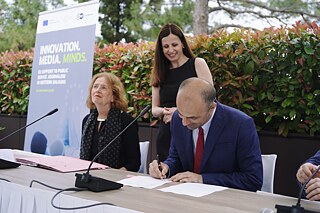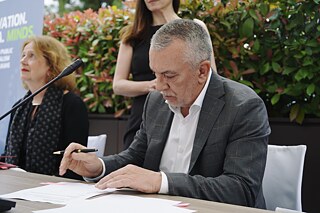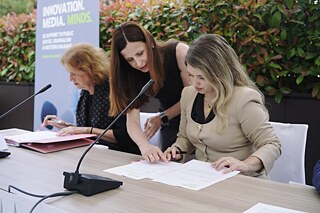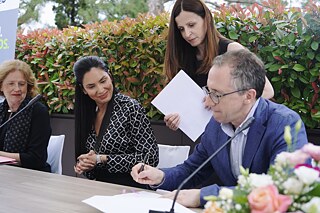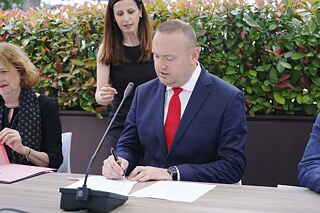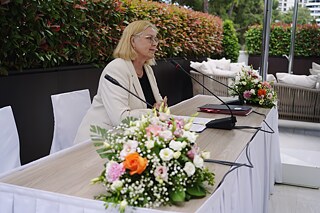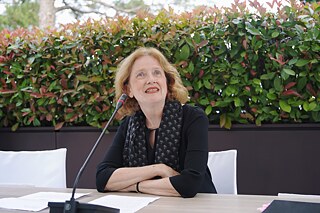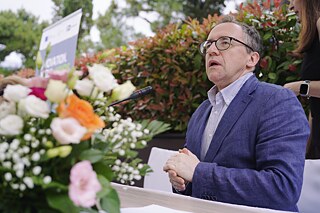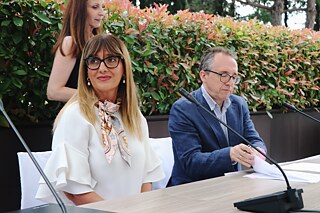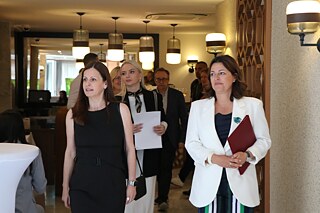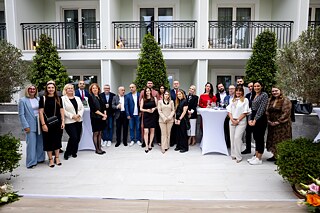Western Balkan PSM sign Memorandum of Understanding
Public Service Media in the Western Balkans Strengthen Cooperation Through New Memorandum of Understanding
28. May, Budva, Montenegro – In a significant move to advance public service journalism in the Western Balkans, a Memorandum of Understanding (MoU) was signed by the Director Generals of seven public service broadcasters, in partnership with the Goethe-Institut and DW Akademie. This milestone occurred during a two-day conference, co-organized by the Goethe-Institut and Montenegro’s public service media, Radio Televizija Crne Gore (RTCG), held on May 28 and 29, 2024
This agreement, part of the EU-funded Innovation. Media. Minds. Program: Support to Public Service Journalism in Western Balkans, underscores a robust commitment to enhancing public service media through regional cooperation and innovation.
The MoU aims to:
- Enhance content production and professional capacity of journalists.
- Increase audience engagement and expand regional cooperation.
- Provide expertise, training, and resources to support public service journalism.
Dr. Tamara Vujovic, Montenegro’s Minister of Culture and Media highlighted that the public service media should be the first instance for citizens to get their information, both in times of crisis and in times of peace.
“Public service media should educate us, offer quality content, topics of importance, which are not and should not be lucrative program, because they are financed by the state. Public service media have editorial responsibility, (offering) true, verified information. Public service media is the mirror and integrity of the state, because their measure of quality should be trust and not viewership”, Minister Vujovic said at the ceremony.
“It is expected that the public service media will additionally improve communication, which is especially important now, during the time of digital developments, when we, as media consumers, are increasingly using digital space”, Boris Raonic, RTCG Director General told Montenegro’s prime time news later that evening. The news program emphasized that RTCFG hosted regional public service media, highlighting the signing of the MoU which includes seminars, study visits, equipment to centers in the region.
“We witness today what many call a “global crisis of democracy.” The wave of disinformation and negative narratives divide our societies, cause radicalization and polarization, and isolate vulnerable and disadvantaged groups. Many citizens have lost trust in traditional media and often fall victim of information manipulation, sensationalism and click-baitism. National broadcasters are one natural ally in the EU our attempts to counter this situation”, said Liselotte Isaksson Deputy Head of Cooperation/First Counsellor in the Delegation of the European Union to Montenegro.
She added that the EU established track-record in supporting independent media and media pluralism in the Western Balkans and Türkiye. “We support a number regional and bilateral program, targeting different systemic aspects of media freedom and development. Currently, the EU has mobilized EUR 54 million in assistance across the region through IPA Civil Society Facility and Media Programme.”
Ms. Angela Kaya, Regional Director of Goethe-Institut South-East Europe, emphasized that “This MoU represents a pivotal step in our joint efforts to foster creativity, innovation, and regional cooperation among public service media in the Western Balkans. It reaffirms our commitment to ensuring that public service media continue to play a crucial role in promoting democratic values and informed public discourse.”
Dr. Maxim Ryabkov, Head of Europe, DW Akademie explained that his institution
considers the signing of the MoU a project milestone in cooperation with public
service broadcasters in Western Balkans. “We believe in the mission of public service broadcasters, especially in these troubled times, in providing the citizens of our countries with trusted information, with quality reporting and constructive reporting. We believe that this mission is crucial. As public service broadcasters (PSB), we are sharing our expertise in some areas which are important for flourishing of PSBs such as reaching new audiences, in particular youth, developing constructive solutions in journalism, as an answer to challenges of today and improving quality of journalism”, he said adding that this also includes looking at technologies and artificial intelligence, which is is a factor in all this. “We are all concerned about disinformation, about possible destabilization of information space and public media is crucial in all this”.
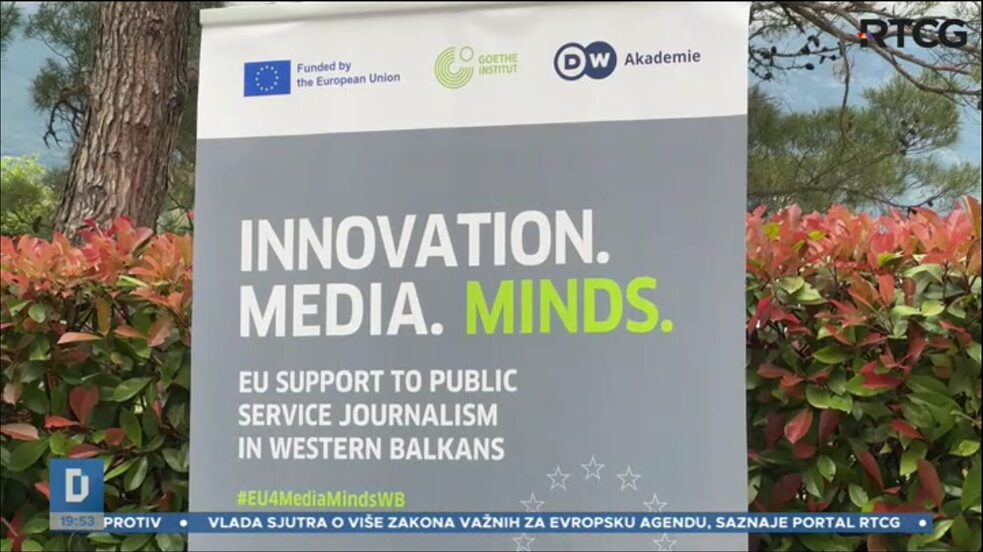
Online Partners' Conference
